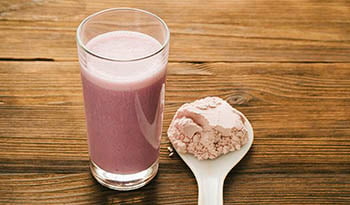How to Reduce Recovery Time After a Workout

Recovery from a hard workout can sometimes seem complicated. There are a plethora of tech gadgets and devices available to maximize recovery. It can be super easy to get wrapped up with the latest recovery craze and in some cases, spend hundreds of dollars on the latest fad. The problem is that in this process, many people neglect the recovery basics. Instead of picking the low-hanging fruit that will yield the greatest returns in recovery, it can be easy to get hooked by the promise of a quick fix.
Don’t get overwhelmed by the latest trends in recovery. Start with these recovery tips that should be the pillar of any recovery strategy.
Prioritize Micronutrient Intake
We are so used to hearing about counting macronutrients, but it is important not to forget the micronutrients. In other words, all those nutrients that are contained in the food we eat that support health. This includes vitamins, minerals, antioxidants and phytochemicals. During times of high training volume or intensity, the metabolic demands are higher. Vitamins and minerals support metabolism, immune system function and growth. Most importantly for recovery, they assist in making and repairing muscle after a workout. Foods such as fruits, vegetables, meats, legumes, and nuts and seeds will provide the largest nutritional bang for your buck. Processed foods such as Pop Tarts or a candy bar may fit your macros, but you are losing out on vital nutrients that help support many processes in the body, including recovery.
Get Protein Before AND After a Workout
Protein intake is important for muscle growth and repair. Eating enough protein before a workout can be important for maximizing the anabolic effect of a workout and minimizing muscle breakdown. Eating protein after a workout can supply the building blocks for muscle growth. If eating a meal high in protein is a challenge consider using a protein powder. The best protein dose appears to be between 20 and 30 grams.
Time Your Carbohydrates Around Your Workout
Carbohydrates are the preferred fuel for training at higher intensities and for heavy strength training. Lack of adequate carbohydrate can increase muscle fatigue during a workout and thus make recovery more challenging. Eating carbohydrate after a workout is important for enhancing muscle glycogen production and to enhance recovery.
Don’t Skimp on Sleep
Sleep is when the body builds and repairs tissue, and not getting enough sleep can have a significant negative impact on performance. Research suggests that sleep facilitates recovery of fatigue acquired during exercise. Sleep deprivation can increase cortisol and decrease insulin sensitivity, which can all have a negative impact on muscle growth and recovery. High training volume with lack of sleep can be a recipe for overtraining.
Stay Hydrated
Our cells need to be hydrated to function optimally. Dehydration can delay post-workout recovery by slowing protein synthesis. Evidence suggests that dehydration can also increase delayed onset muscle soreness after exercise.
Be Cautious at Happy Hour
Alcohol is dehydrating and the metabolism of alcohol takes priority over other nutrients, which could mean certain nutrients may not be available for recovery. Drinking alcohol after exercise can also decrease muscle growth.
Maximize Your Recovery With Specific Supplements
Tart cherry juice
Tart cherry juice has been shown to decrease muscle soreness and possibly enhance recovery. Another potential added benefit is an improvement in sleep.
Beta-alanine
Beta-alanine can act as a buffer and reduce acid accumulation during exercise and help prevent fatigue.
Creatine
Creatine is effective in improving anaerobic power and strength, but it can also improve the cells’ ability to balance energy and possibly decrease muscle soreness.
Fish oil
Fish oil (omega-3 fatty acids) have an anti-inflammatory effect and could be effective in reducing muscle damage post exercise.
References:
- https://www.ncbi.nlm.nih.gov/pmc/articles/PMC3257708/
- https://www.ncbi.nlm.nih.gov/pmc/articles/PMC1323290/
- http://diabetes.diabetesjournals.org/content/63/6/1860.short
- https://www.ncbi.nlm.nih.gov/pubmed/16868650
DISCLAIMER:This Wellness Hub does not intend to provide diagnosis...

















































































 Table of Contents
Table of Contents











